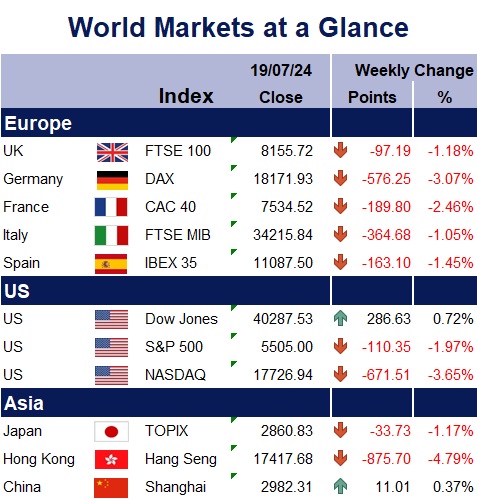As expected, the ECB decided to leave their key lending rates unchanged on Thursday at 3.75%. The decision was reflective of information surrounding the medium-term inflation outlook, they said in their post-announcement statement. While the inflationary effect of high wage growth has been mitigated by profits, the Bank noted that domestic price pressures are elevated, services inflation remains sticky and stubbornly high, and headline inflation will likely exceed the Bank’s 2% target until at least 2025. ECB President, Christine Lagarde, stated that their next rate decision in September was widely undecided at the moment, and reiterated her commitment to being led by the relevant economic data. As the market had already baked in a stay of rates from the first Western central bank to initiate a cut for some time, markets were muted following the announcement.
A raft of data also emerged from the UK last week. Unemployment in the three months to the end of May remained unchanged at 4.4%, with the highest levels seen in the East Midlands (5.6%) and the lowest in Northern Ireland (2.0%). In terms of policy decisions, however, it is more likely that the Bank of England will take more note of the latest wage growth figures. Data released showed that wages grew by 5.7% in the three months to May. Although this growth was the slowest in core pay since the summer of 2022, it is still outpacing the current inflation figure for the region of 2% and has investors wondering whether an August rate cut will now be postponed to September. Policymakers are likely to wait for further evidence of the labour market cooling before easing restrictions. Although there was an increase in the minimum wage in April, its effects on pay growth are now diminishing. This slowing in pay growth might influence their decision-making process.



